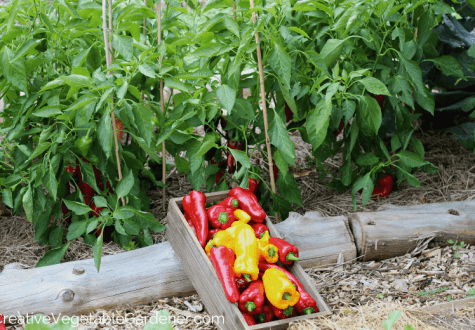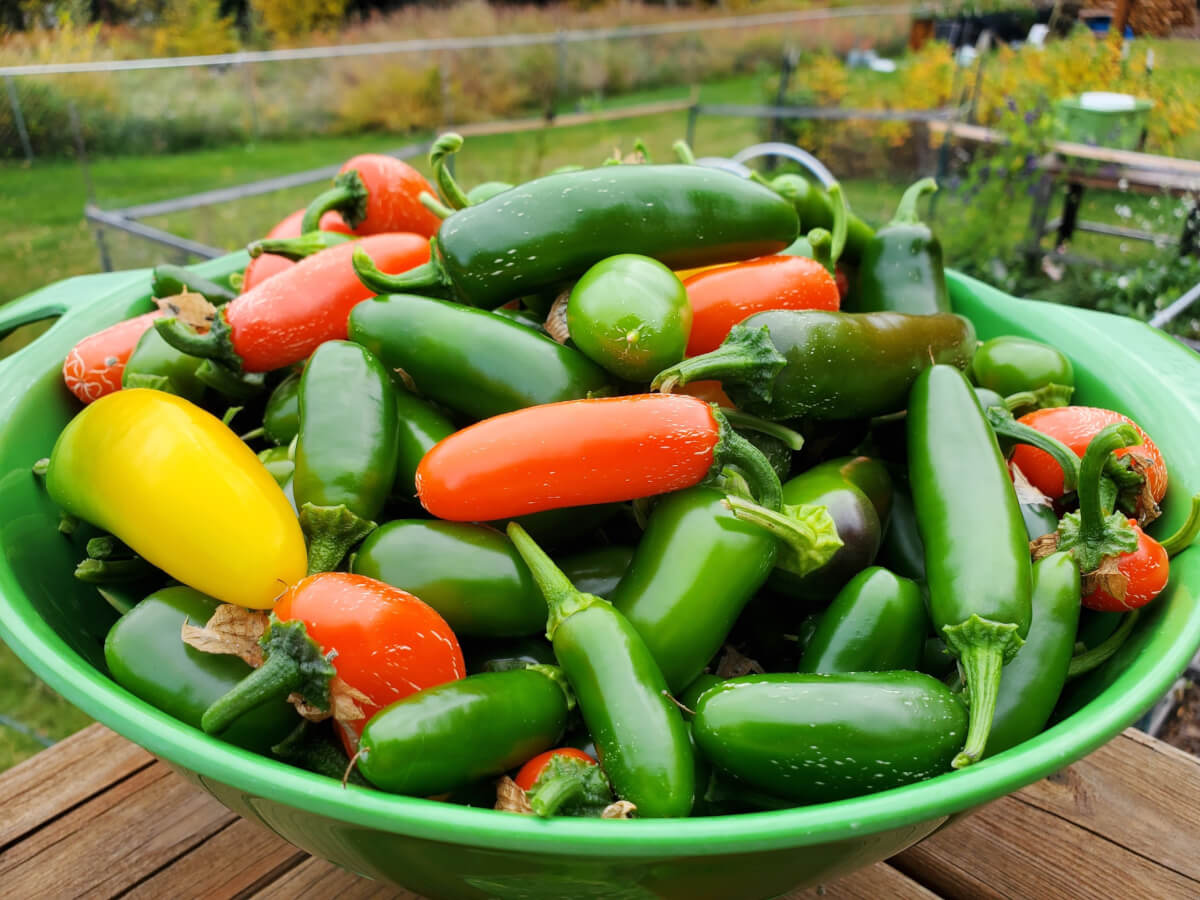Best Fertilizers for Peppers: Maximize Plant Health and Return
Best Fertilizers for Peppers: Maximize Plant Health and Return
Blog Article
Organic Vs. Synthetic Fertilizers: Which Is Best for Nurturing Healthy Pepper Plants?
In the realm of supporting healthy pepper plants, the choice between synthetic and organic plant foods stands as an essential choice with far-reaching ramifications. While both choices purpose to offer crucial nutrients to sustain plant growth, the subtleties of their influence on the soil, plant health, and the setting spark an argument that echoes throughout the horticulture community. Recognizing the distinctive advantages and possible challenges of each fertilizer type is crucial for pepper growers looking for to optimize their yields while keeping a lasting and eco-conscious approach.
Advantages of Organic Plant Foods
Organic fertilizers offer an environmentally-friendly and sustainable strategy to beneficial pepper plants, providing vital nutrients without using synthetic chemicals. These all-natural plant foods are originated from organic resources such as garden compost, manure, bone meal, and algae, promoting dirt health and wellness and biodiversity. Unlike artificial plant foods, organic choices release nutrients slowly, ensuring a well balanced and stable supply for pepper plants to prosper.
One substantial benefit of natural plant foods is their capacity to boost soil framework and water retention. By enhancing soil health and wellness, organic plant foods advertise helpful microbial activity, which assists in nutrient uptake by pepper plants. In addition, natural plant foods minimize the danger of chemical run-off, safeguarding water sources from pollution and guarding the setting.
Furthermore, organic plant foods add to lasting soil fertility by promoting the growth of advantageous dirt organisms. These microorganisms aid damage down raw material, launching nutrients in a form that is quickly obtainable to pepper plants. best fertilizers for peppers. By fostering a healthy soil environment, organic fertilizers sustain sustainable pepper cultivation practices that benefit both plants and the environment
Drawbacks of Artificial Plant Foods
Synthetic plant foods, in comparison to their natural counterparts, position different drawbacks when made use of to nurture pepper plants, affecting both plant wellness and environmental sustainability. One significant disadvantage of artificial plant foods is their propensity to leach nutrients from the dirt rapidly.
In addition, the overuse of artificial fertilizers can add to water pollution. Excess plant foods not soaked up by plants can remove right into water bodies, resulting in eutrophication, where algae flowers diminish oxygen levels in the water, damaging aquatic life. Moreover, artificial fertilizers are commonly obtained from non-renewable sources, such as nonrenewable fuel sources, adding to carbon exhausts and ecological degradation during their production.
Nutrient Absorption Comparison
When comparing synthetic and natural plant foods in terms of nutrient absorption, natural fertilizers have the advantage of supplying an extra balanced and slow-release resource of nutrients. Organic fertilizers consist of a variety of macro and micronutrients that are not just advantageous for the plants however additionally promote healthy soil microbial activity, which aids in nutrient uptake.
In addition, organic plant foods boost dirt structure and water retention capacity, permitting pepper plants to gain access to nutrients much more effectively. This improved soil quality helps with origin development, making it possible for far better nutrient absorption. Synthetic plant foods, although initially boosting plant growth due to their high nutrient focus, might impede long-term nutrient absorption by degrading soil health and wellness gradually.
Ecological Effect Considerations

On the see other hand, synthetic plant foods, although usually even more concentrated and promptly offered to plants, can have damaging impacts on the environment if not used correctly (best fertilizers for peppers). Their production requires high power inputs, resulting in greenhouse gas discharges and adding to environment change. The overflow of excess artificial plant foods can pollute water sources, leading to eutrophication and hurting marine communities.
Ideal Fertilizer Practices for Peppers
When fertilizing pepper plants, maximizing nutrient uptake and decreasing environmental influence are crucial considerations. To attain this, it is necessary to adhere to best plant food techniques tailored to the certain demands of pepper plants. One essential practice is to do a dirt examination prior to using any kind of fertilizers. This test can identify the pH level of the dirt and recognize any type of nutrient deficiencies, guiding you in selecting the most ideal fertilizer formula.
One more essential practice is to feed pepper plants at the appropriate time. Commonly, peppers gain from obtaining fertilizer at growing and after that once again when they begin to blossom. Over-fertilizing can lead to vitamins and mineral imbalances and damage the plants, so it is important to comply with recommended Get More Info application prices.
Furthermore, selecting a balanced plant food with an NPK proportion that suits pepper plants' requirements is fundamental. Ultimately, incorporating artificial and organic fertilizers deliberately can help support healthy and balanced pepper plants while minimizing ecological impact.
Final Thought

Organic plant foods offer an environmentally-friendly and sustainable approach to nourishing pepper plants, providing important nutrients without the usage of synthetic chemicals. Unlike artificial fertilizers, natural choices release nutrients slowly, making certain a stable and well balanced supply for pepper plants to grow.
Artificial fertilizers, in contrast to their organic equivalents, position different negative aspects when made use of to nourish pepper plants, impacting both plant health and wellness and ecological sustainability. When contrasting organic and synthetic click this fertilizers in terms of nutrient absorption, natural plant foods have the benefit of offering an extra well balanced and slow-release source of nutrients.Additionally, organic fertilizers enhance dirt structure and water retention capability, permitting pepper plants to accessibility nutrients more successfully.
Report this page